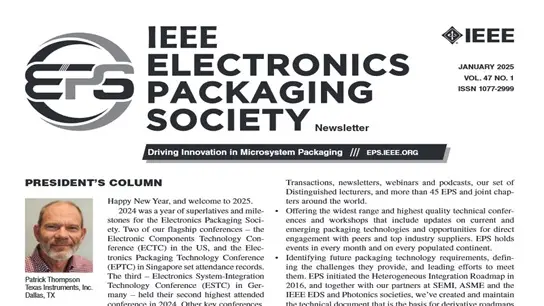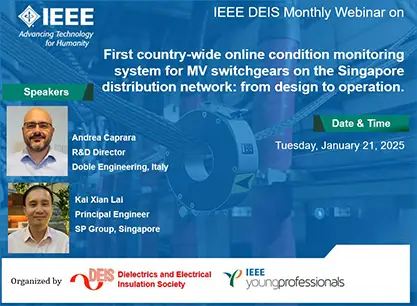Energy Harvesting and Wireless Power Transfers for RFID and Wireless Sensors Video
Apostolos Georgiadis
-
Members: FreeMTT
IEEE Members: $9.00
Non-members: $14.00Length: 00:59: 54
11 Jul 2017
RFID technology provides a foundation, an enabling technology towards the realization of ‘zero-power’ wireless sensors and implementing the Internet-of-Things (IoT) and machine-to-machine (M2M) communication. Interest in RFID technology is further enhanced by its fundamental capability for wireless powering of devices, allowing for battery-less operation. The presentation begins with an overview of ambient energy availability and energy harvesting technology challenges for low power circuits and sensors. Design challenges and novel technologies and materials, such as paper, textiles, and inkjet/3D printing are highlighted. Special focus is placed on electromagnetic energy transfer and harvesting for range maximization of passive RFID systems. Rectenna design and optimization under different operating conditions and in different operating frequencies from HF to millimeter waves is addressed. Multiple technology harvesters leading to the development of energy harvesting assisted RFIDs are discussed. Low profile and conformal solar antennas and solar–electromagnetic harvesters including examples implemented on paper and textile substrates are presented. The integration of an antenna with a thermo-electric generator is demonstrated. Waveform optimization in wireless power transfer is addressed, and the ability to improve the RF-DC power conversion efficiency of electromagnetic energy harvesting devices by tailoring the characteristics of the transmitted signals is discussed. The last part of the talk presents application examples including wireless sensors powered from solar and electromagnetic energy harvesting, millimeter wave back-scattering, solar energy harvesting for RFID tags and sensors based on ambient backscattering.


